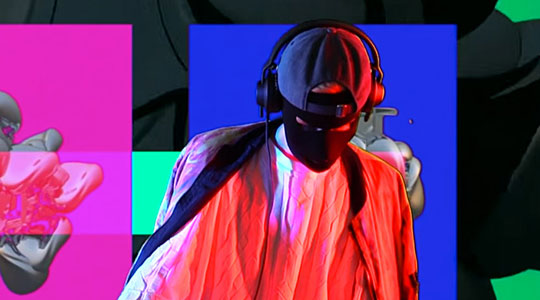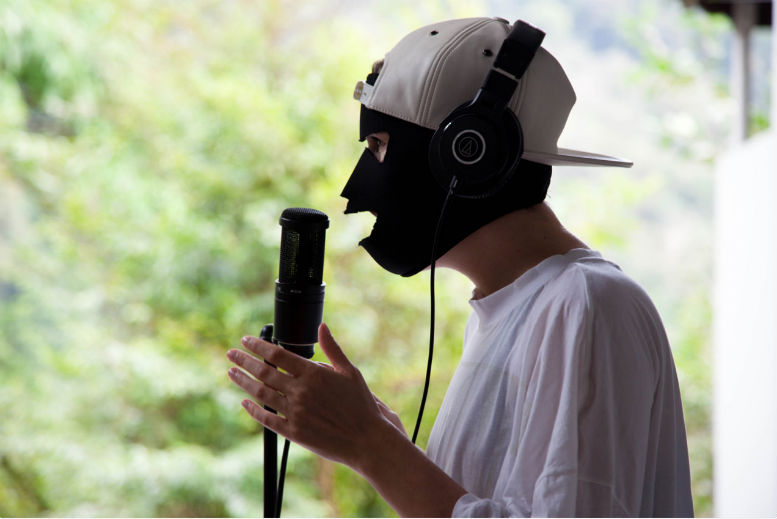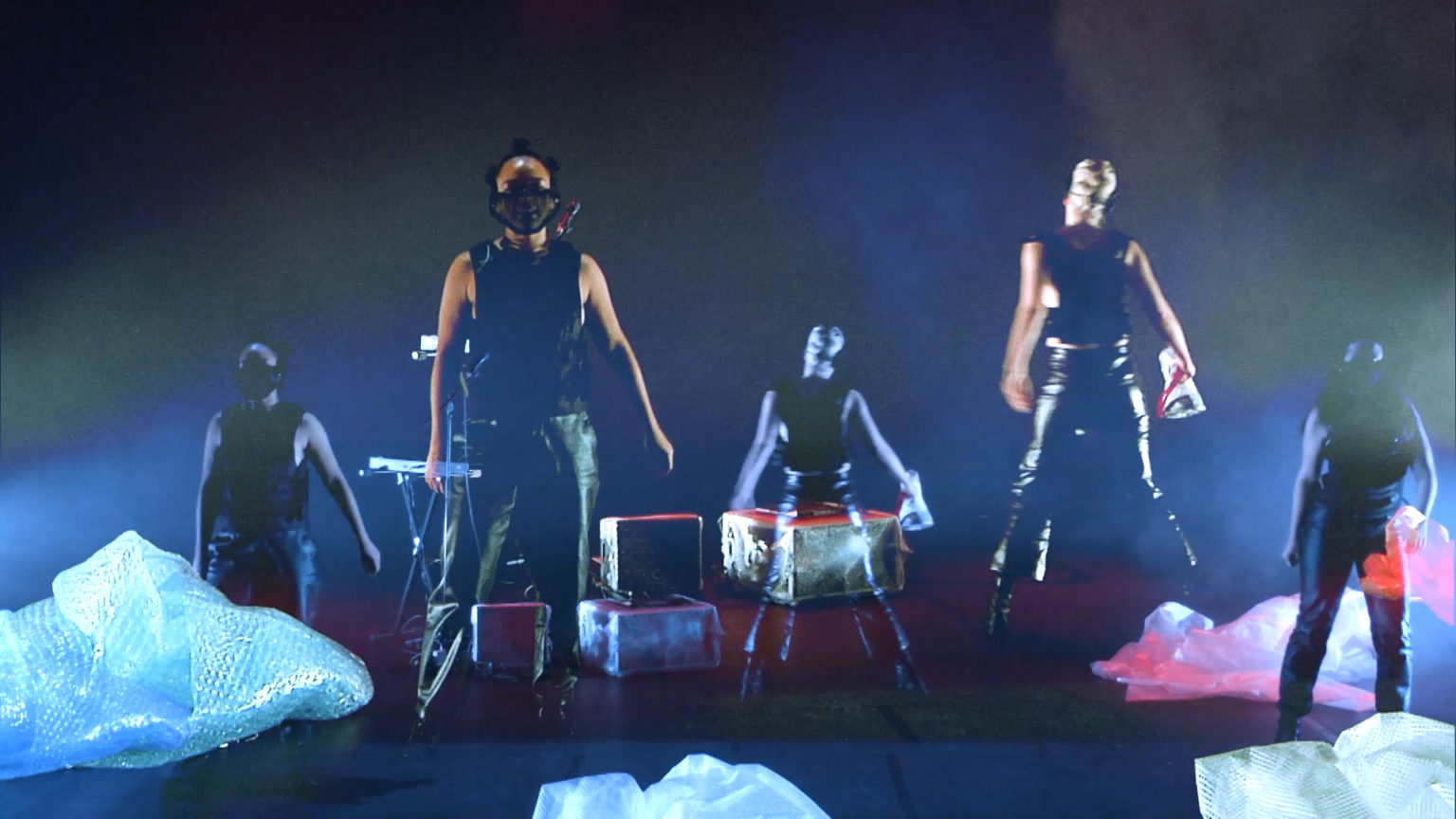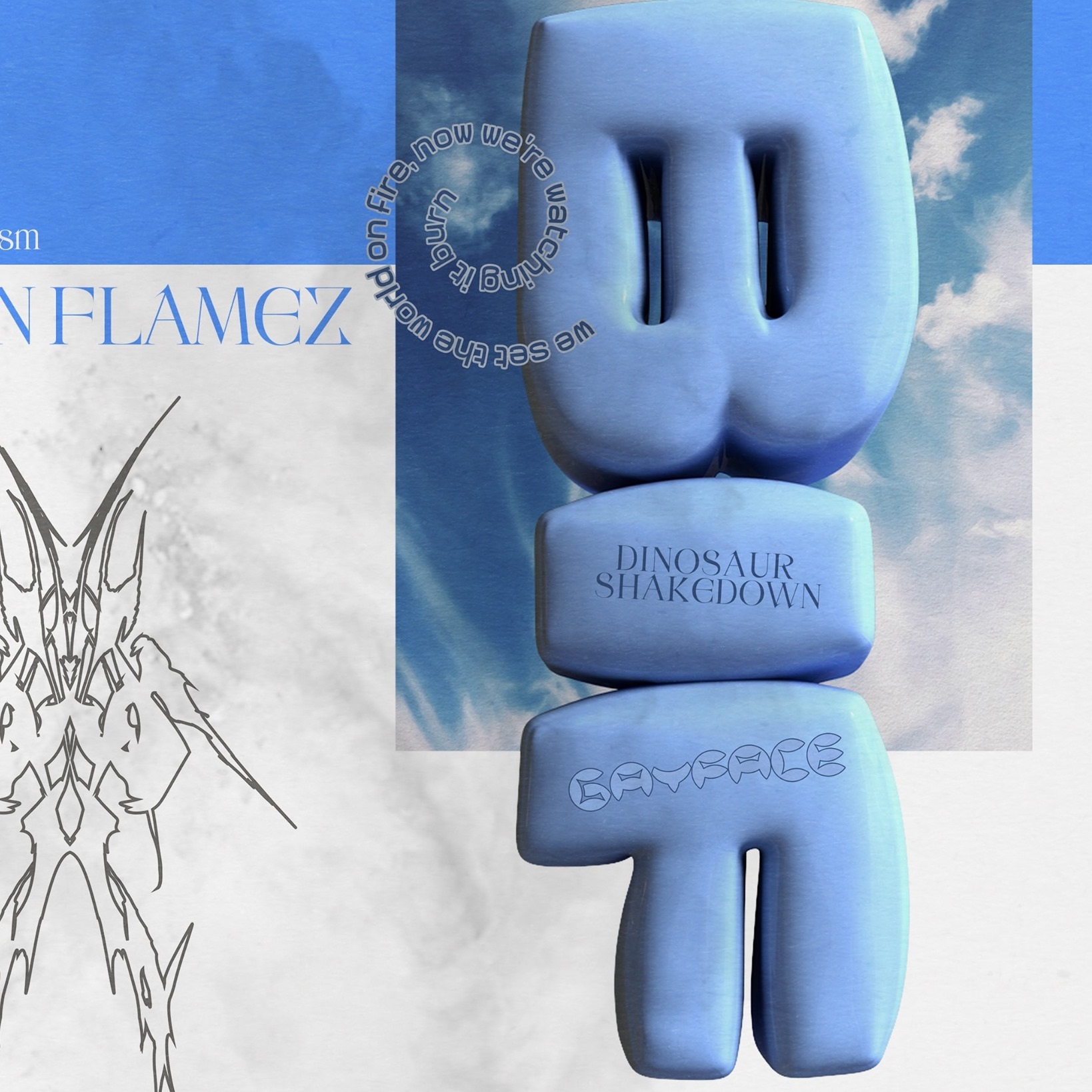
Born in Flamez : “Coronavirus challenge reveals the crisis we are in, it reveals that money is more important than human lives”
AN INTERVIEW IN TWO ACTS. BORN IN FLAMEZ : “CORONAVIRUS CHALLENGE REVEALS THE CRISIS WE ARE IN, IT REVEALS THAT MONEY IS MORE IMPORTANT THAN HUMAN LIVES”. BY PAT ALIEVA
by Pat Alieva | 2020/09/07
Lockdowns, global economic recession, hunger, human rights crisis. The Covid-19 crisis, being a consequence of human activity, exposes our lack of compassion, xenophobia and racism. Humanity under siege is deliriously waiting to return to some kind of mythical “normality” that never existed. Constantly living with stress, anxiety and uncertainty dulls human sensitivity to suffering. More and more people shut down emotionally and numb their feelings with antidepressants.
Art turns into mere entertainment, everything is a product, everyone is a consumer. Talking about music, some of us did realise that there never was a “scene” and that there was nothing to save really. What we have been calling “the music industry” was actually a pretty ugly and frail structure, mirroring overall consumerist madness. For some human beings through music still is the lens that can turn the light they have inside into a burning point. Maybe we could use this to light our way out of this ballardian nightmare. Music can teach us more than we can imagine, especially now.
It seemed like the right moment to talk to someone who knows how not to give in to fear, panic and despair in times of crisis. James (Born in Flamez) understands better than anyone that this “crisis” we are all talking about so much now, has actually been around for a very, very long time. So I talked to Born in Flamez about a lifelong struggle for equality and for being accepted or loved for simply who you are. About channelling anger and pain. And about living with an autoimmune disease. Which breaks our conversation in two parts, before and after the coronavirus outbreak.
PART 1:
Pat: How has your life changed because of the coronavirus crisis?
Born in Flamez: I think it’s all more or less the same for everybody, a lot changed on professional and personal levels, we are all locked inside, we can’t touch each other anymore, which is a huge change and it all influences our collective mood, we are more depressed and anxious. Which is probably normal. We don’t know what is going to happen in the future. All my concerts were canceled, I had to go back to Germany and, as you know, I was planning on staying in Mexico for at least half a year. Part of my equipment is still in Mexico actually. But I am trying to stay positive and focus on work. I was talking to a lot of my artist friends and we were like “We are all gonna end up in our mom’s houses, haha”. For a lot of artists this situation means they will have to find a new job to earn their living. But complaining about that doesn’t make any sense, there’s already enough darkness out there.
P: As a person with an autoimmune disease, how are you coping with this? Have you been talking about what you are going through on social media, not as an artist but as a human being? Have you been trying to raise awareness about how people with such a condition might feel in the current situation?
BIF: I can’t take medication I usually take because it is suppressing my immune system and right now I can’t suppress my immune system because of the risk of contracting coronavirus. So I risk worsening my current condition but there’s no other way to do it really. And no, I’ve never come out as a person with an autoimmune disease. Maybe as an artist, if one can reach out to people, one should talk about this, but It’s so personal that I am always wondering if I really am allowed to talk about this as an artist, Born in Flamez is a concept to me and it’s a bit tricky when it comes to the personal side. But, thinking about it, the coronavirus crisis is actually the time when we should talk more about more personal stuff and health issues.

P: Behind every project there are real people, maybe we should change our attitude and see artists as fellow human beings, as people who are there not just to entertain us but to teach us something. Like, to cope with situations like yours for example. What would you say to other people who are in risk groups and facing similar situations?
BIF: I think what you said is actually very true. I just think people might not want to hear about artists’ health problems or depressions, there are a lot of people who are depressed and lost their jobs and artists are seen as privileged people who are just having fun and stuff. Anyway, I am in a privileged position because I have health insurance that covers my costs in case I have to go to the hospital. I would say, if you have serious health issues, be careful, more careful than everyone else. You probably have a good evaluation system, in the sense that you probably have already learned to listen to your body, you can feel and hear what it tells you, when it warns you against doing something. Don’t ever go over that gut feeling. And find others and talk with them about your problems, about how you are dealing with it. I am doing it. And it’s very helpful. When the crisis hits we try to connect more, it reminds us of community values and it’s a good thing. It also shows us how greedy and cruel we are. The coronavirus challenge reveals the crisis we are in, it reveals that money is more important than human lives which are at disposal right now. It’s a good moment to think how to make things right, maybe it’s an opportunity for us.
PART 2:
Pat: Did you always know you wanted to make music?
Born in Flamez: I don’t think so, I think I always knew I wanted to make music, but I was kind of too shy for it. So when I started studying audio engineering I did that because I thought that it would be great to have a job related to music. I kind of had this impostor syndrome in a way. And after that I had other jobs like working with labels and stuff, it took me quite a while to get to the point when I decided to focus on music. It’s been a difficult path.
P: What helped you to overcome your fears and deal with this impostor syndrome?
BIF: I think it was all due to a very deep, deep heartbreak and this heartbreak kind of had to come out and I turned it into music. That’s how I made my first record. Actually after this heartbreak I found a new partner who was very supportive and I think this support played a huge role. Her being like “Hey, this is great, you really should work on this” was very important to me.
P: And your family? Do they support what you are doing?
BIF: Yes, they are very supportive. My mom is the most supportive person I can think of, she comes to almost every concert I play, and she even travels for it which is very cute. My dad is a musician too and he is very critical of what I do, so whenever I send him some new stuff, he replies with two or three pages of criticism and is like “Hey, you should do this better, bla bla bla, this is too simple”. And then I’m like “I’ve already released it, but thanks!”. I think that for my dad the more complicated music is, the more it counts as music. But he is also very supportive in the way that he listens to my stuff, you know. I have a lot of friends who are musicians and whose parents never listen to their stuff. They are like whatever, I am not into this.
P: Do you think that you getting into music and your decision to study and to make music has been influenced by your family? Like, for example, your father is a musician…
BIF: I don’t really think so. I didn’t grow up with my dad. My father left very early, my parents separated when I was six. And he was a philosopher when he was younger, he wasn’t making music, it came way later in his life. And my mom never listens to music, that’s pretty crazy. I got into music pretty late, at home we were listening only to classical music. I think I started listening to something different when I was maybe 14. Which, I think, is pretty late. But maybe the fact that I was kind of “starved” and that there wasn’t a lot happening around me music-wise, was actually what made me dive into it.
P: What was the scene like when you were growing up? Were there a lot of parties? What genres were the most popular?
BIF: I guess it was psytrance and actually some friends of mine were making house parties or parties at abandoned farms in the countryside. I was surrounded by music heads, nobody was listening to the music I was listening to, to early trip-hop or drum’n’bass, but they were all deeply into something. Like for example psytrance or goth trance. At that age I was living in the countryside, so I had to dig deeper to find music that I liked. I started going to concerts pretty late. I wasn’t really much into it, I was more into clubbing. I actually started going to concerts quite recently. My thing was more like electronic live acts, festivals and clubs. Actually I’ve seen Peaches live recently and she was so amazing, it might have been the best concert I’ve ever been to.
P: Why?
BIF: Well, she had 25 musicians on the stage with her, all female or female-identified, and everything was live and then she had all those dancers, and the message was so strong and political. And the performance was so engaging and so new, I was mind-blown.
P: What was the message?
BIF: Super feminist, super queer, super anti-ageist, because also she is in her 50s now. And she always finds a thing which is wrong with society and then she talks about it. And since she has such a big audience now, she has access to a lot of people…I feel like it always kind of impresses me a lot when you use your voice to address things that are kind of wrong.

P: Isn’t it what you are doing as well?
BIF: Yes, but the way I do it is a little bit less direct.
P: In what way?
BIF: With Peaches it’s always been more bold and in your face, more punk. With my music I am looking for something more subtle. But I think maybe I’m becoming more in your face now.
P: What are the things you address?
BIF: Queer identities, post-humanism and trans humanism and definitely feminism I guess. The last record I did was actually dedicated to the death of the old white man. I had this crazy argument with my dad, when he was calling someone a faggot. And I said: “You can’t use this language”. And he said: “You can’t censor me, I am going to use whatever I want”. And then I was like “Yes, but your daughter is queer and you are using this language in front of me, can you please think about that?” And he was like “I am not gonna be censored, I can say what I want”. I freaked out and left the house, didn’t talk to him. And then next morning he came to me and apologised. I am happy he did, but I feel like this kind of behaviour is so prevalent in the world today. That a lot of men, especially white men, who are getting angry about the fact that there are other groups that are gaining a little bit more independence and power now. You know, we are not all equal. For example, women still have to go and protest and to fight for their rights.
P: Do you think this hostility really has to do with gender? Or where is it coming from?
BIF: Yes, I think it has to do with gender. It has to do with power. I’ve been thinking recently about how we are always saying that it’s 2020, it’s been 2020 years of oppression and then you start thinking about that and you realise that no, it wasn’t 2020 of years of oppression, it’s been millions of years. And people are still not fucking equal. I think it has to do with physical strength and that’s probably the reason why men are still in charge, but it’s also cultural now. If you are growing up as a man it’s a different story from growing up as a woman or a female identified person. Because if you are a man, society treats you as a person who can do or achieve anything! And if you are a woman it’s like don’t wear short skirts when you go out because you might get raped! Does this mean I can’t choose what to wear because I have to be afraid of the opposite gender? Fuck! That’s crazy!
P: So your ideas, your message is a way to overcome limitations and stereotypes?
BIF: Yes, I guess so. I guess it’s a fight for equality and an attempt to unthink gender, I think that was the main message behind the project, I was trying to unthink gender, unthink nationality, all those things that put us into boxes and give us categories and give us different values.
P: You said you’ve been studying philosophy, have you always been interested in trans humanistic ideas?
BIF: Not really, I think that when I first started studying philosophy I became interested in the idea of language, I mean I still am. But when I started thinking about making electronic music, I was like…Or better let me start in a different way. In literature there is a movement called intertextuality. And when I started making music I realised that it was all the same with music. All the concepts you are working with are from somewhere else and you are influenced by everything that you hear and see somewhere else, you are a product of what you are culturally encoded as and what you grew up with, so it’s actually the same with music. And that was when I actually started to think of everything in a transhuman way. Because first of all, the computer plays such a big role in the process of music making. When you make electronic music you always do something transhuman.

P: What authors, philosophers or ideas or philosophical movements influenced you most?
BIF: Donna Haraway was probably the biggest influence, and also Rosi Braidotti, and Karen Barad.
P: And why did you choose Born in Flamez as the name for your music project, it’s a very direct reference to the movie, did you do it on purpose?
BIF: Yes, it’s because of the movie and because it represents everything I believe in and stand for. Also it has a personal meaning for me, because I have autoimmune disease which has to do with inflammation so my body was kind of born in flames.
P: So this, and then heartbreak…
BIF: Hahahah, yes, lots of things!
P: Can you say that these things shaped you as a person and also gave you strength to fight?
BIF: I guess so. I mean everybody draws from some kind of personal experience. For sure, there are political ideas, then personal things, then what the computer adds to what I do, then everything that surrounds me and what I like, and also other types of inspiration like performance art, it all shaped me and it all goes into what I do.
P: Were you ever angry? Because of the things you had to deal with and things you had to overcome?
BIF: Well, interesting question! Thanks for being my psychiatrist haha! I feel like for a long time I had a huge problem with being angry cause I didn’t quite understand the concept. Actually I had a shrink for two years and she was like “What do you do when you are angry?” And I was like, “I don’t know, I mean it would be just really stupid to go outside and just scream or something…”
P: I don’t know, I don’t think it’s stupid…
BIF: At some point I actually realised I channel anger through singing.
P: Yes that’s basically the same as going outside and screaming on the top of your lungs!
BIF: Yes, exactly! I think I’ve always been channelling my anger into singing. Especially when I was a teenager, every time I would get really angry, I would vacuum clean my room and I would turn the music on so loud and then I would sing to the music while I was cleaning my room hahah. Later I figured I was channeling my anger. So yep, there was a lot of noise.
P: Were you a troublemaker as a kid?
BIF: Not really, I don’t think so. I had three younger siblings and my mom was a single mom so I had to take care of the younger ones. Maybe I was, just a little bit. Like you know, going out late at night and things like that. But in the end I had too many responsibilities, there was no space for being a troublemaker. Otherwise the whole family concept would have broken down.
P: Do you want to have kids of your own?
BIF: I don’t know. I feel like the state of the world right now is so complicated, I am super afraid of what’s going to happen. I mean there is lots of fascism, also the climate catastrophe is insane. Whenever i think about it I think that it would be really selfish to bring a new being into this world. Like you turn thirty and then what, you die? Very dark…

P: Sounds somewhat pessimistic…
BIF: Yes, that’s a bit pessimistic. I mean, I recently told my partner that if she wants kids, I will be down for it, but it’s her decision. So we will see I guess.
P: Have you ever been thinking of giving up music or changing your direction?
BIF: Yes, I think of it all the time, but not as something that I would wanna do, but maybe something I might have to do at some point and it has a lot to do with ageing in the music scene. Now there are more women and non-binary people in music that are over forty and it’s a new thing, but generally, as a musician, you always have to be youthful and attractive. Like people ask why is Madonna still making music? Because she is a musician, that’s why! You wouldn’t ask a doctor why he is still a doctor if he is 50, right? You only ask a musician about it. Like in the end you always ask yourself how long can I do it for?
P: Don’t you think that it all boils down to the lack of empathy in people in general? And is not that much about the music industry or ageing and stuff?
BIF: Yes I think you can break it down to that, like not accepting people who are different from you comes from the lack of empathy but then the lack of empathy is kind of taught to us by society, like for example “more people in the country means less jobs for everybody”. I am trying to think where it is all coming from, all the time. Like is envy something that is encoded in our DNA? I’ve been talking recently to a couple of friends, one of them is a biophysicist and the other one is a biochemist. And they were like yes, evolution, have you ever thought about it that way? And then I was like yes, the survival of the fittest, it kind of means that you have to get rid of your competition, so it’s something that’s built …I don’t want to say in our genes, but it’s something that has been there for a very very long time. and I think that competition is what probably fuels the lack of empathy.

P: Do you feel like there’s a lot of envy and competition in the industry now? Did you have to deal with something like this, with cruelty and hostility?
BIF: I think it’s probably like that in every industry and even more in creative industries where a lot of people rely on freelance jobs and stuff. But yes, I think there are a lot of people who don’t understand that If somebody is prosperous, it doesn’t at all mean that you have to suffer. Sometimes there’s jealosy and envy which is really stupid. I think it’s something we still have to learn to deal with.
